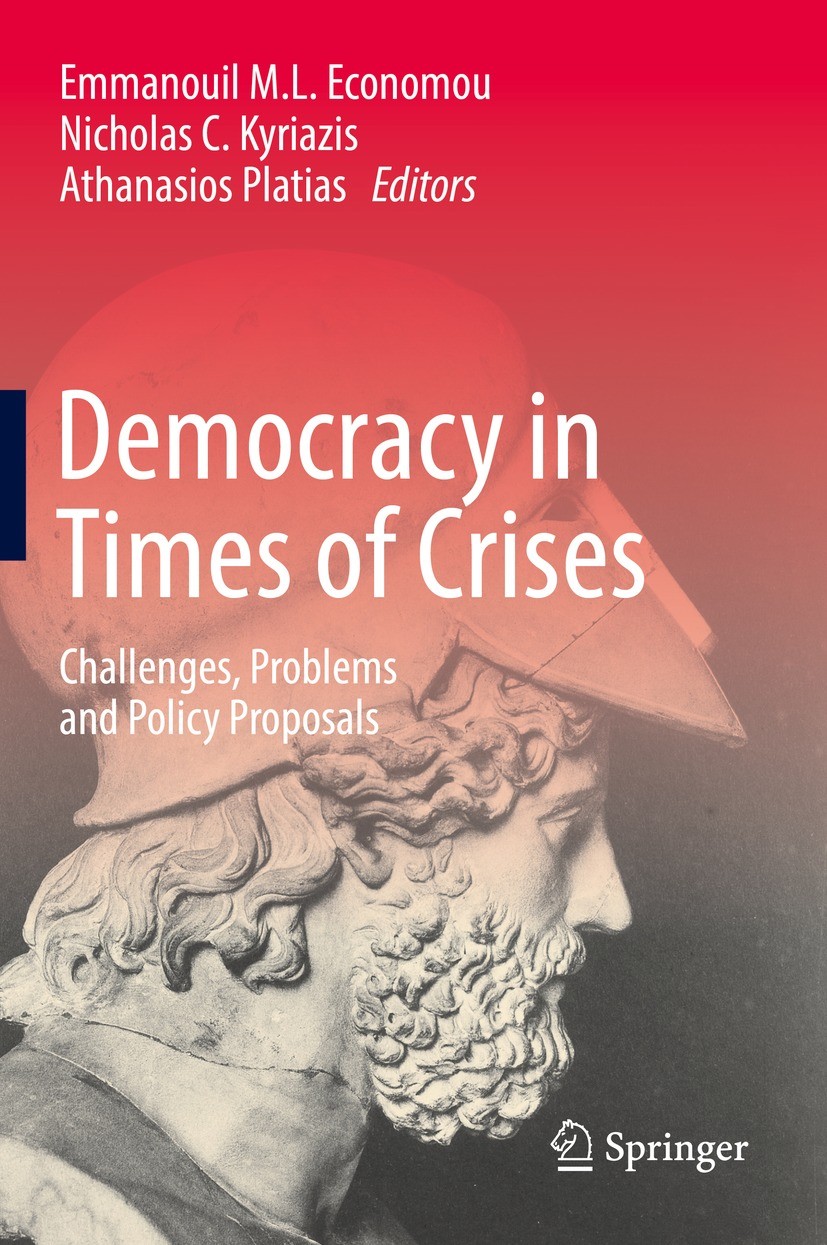| 书目名称 | Democracy in Times of Crises | | 副标题 | Challenges, Problems | | 编辑 | Emmanouil M.L. Economou,Nicholas C. Kyriazis,Athan | | 视频video | http://file.papertrans.cn/266/265172/265172.mp4 | | 概述 | Discusses the current pressing issues of democracy worldwide.Presents solutions to current pending problems at the global level.Inspired by the democratic origins of the Greek naval victory at Salamis | | 图书封面 |  | | 描述 | .Inspired by the democratic origins of the Greek naval victory at Salamis, the book discusses the current pressing issues of democracy worldwide. In 12 carefully selected chapters, well-renowned scholars from around the globe discuss topics such as Brexit, Euroscepticism, or the rise of populism. The authors further analyze various aspects of democracy, as well as various types of democratic regimes, such as mixed government, direct democracy, and cases of quasi democracies. While doing so, they relate this discussion to the pivotal question of how the quality of democracy today can be improved, seeking answers and solutions to current pending problems at the global level. ..This book is the second out of two edited volumes as a sequel of an international academic conference titled .Salamis and Democracy: 2500 Years After. that took place between October 3rd and October 5th, 2020, on the occasion of the 2500th anniversary of the great historical event of the Battle of Salamis, which saved Greek culture and the newly founded democratic regimes throughout the Hellenic world during the Classical period (508-323 BCE). The book is a must-read for scholars and students of political scien | | 出版日期 | Book 2022 | | 关键词 | Populism; Brexit; Euroscepticism; Mixed government; Checks and balances; Democratic governance; Battle of | | 版次 | 1 | | doi | https://doi.org/10.1007/978-3-030-97295-0 | | isbn_softcover | 978-3-030-97297-4 | | isbn_ebook | 978-3-030-97295-0 | | copyright | The Editor(s) (if applicable) and The Author(s), under exclusive license to Springer Nature Switzerl |
The information of publication is updating

|
|
 |Archiver|手机版|小黑屋|
派博传思国际
( 京公网安备110108008328)
GMT+8, 2026-1-17 01:32
|Archiver|手机版|小黑屋|
派博传思国际
( 京公网安备110108008328)
GMT+8, 2026-1-17 01:32


